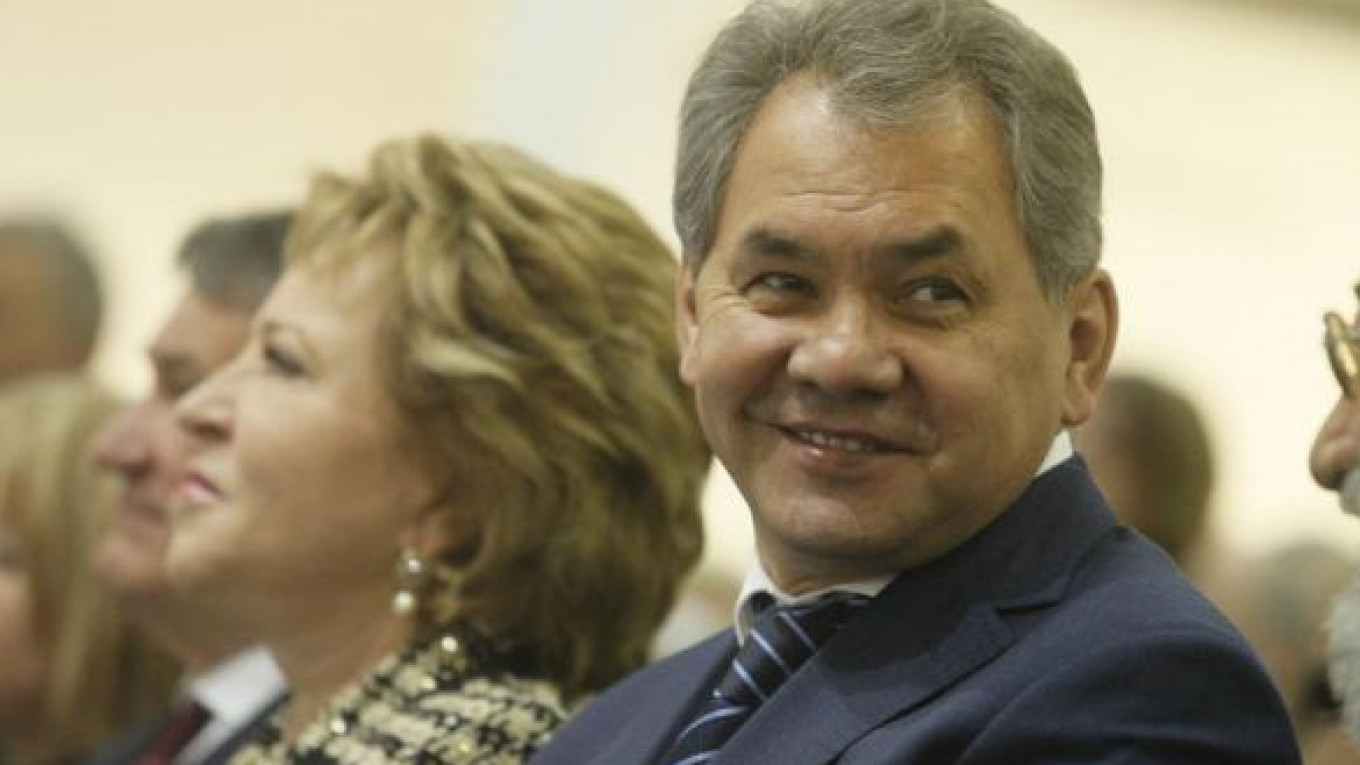German newspaper Bild has published the names of 13 Russian officials and businessmen who could face joint EU-U.S. travel bans over Russia's military intervention in Ukraine and Sunday's planned referendum in Ukraine's Crimea region.
Unidentified diplomats in Brussels and Washington told Bild that the blacklist contains the names of Defense Minister Sergei Shoigu, Federal Security Services head Alexander Bortnikov, presidential administration chief Sergei Ivanov, Deputy Prime Minister Dmitry Rogozin and Security Council Secretary boss Nikolai Patrushev.
Gazprom CEO Alexei Miller and Rosneft head Igor Sechin were named as possible targets, as were presidential aides Sergei Glazyev and Vladislav Surkov, and the chairman of the State Duma's International Affairs Committee, Alexei Pushkov.
The report said that a decision on the joint sanctions will made Monday at a meeting of EU foreign ministers in Brussels, though it is unclear how European diplomats could authorize U.S.-related bans without the direct participation of Washington officials.
The information has not been confirmed by the relevant authorities.
Respective spokesmen for Gazprom and President Vladimir Putin declined to comment.
A spokesman for Sechin said that taking action against his boss would be counterproductive, Reuters reported.
"I hope that this all ends up being empty rhetoric," the spokesman said. "It's silly, petty and obvious sabotage of themselves. I think it will primarily affect Rosneft's business partners in the West in an extraordinary way."
The report said that Liberal Democratic Party leader Vladimir Zhirinovsky, the commander of the Russian navy's Black Sea fleet, Alexander Vitko, and the head of Rossia Segodnya news agency, Dmitry Kiselyov, could also fall foul of the sanctions.
Crimeans will vote on Sunday to decide whether the peninsula, which has a large ethnic Russian populace, should become part of Russia. The West and the interim government in Kiev have both said that the referendum is illegal and that they will not recognize the result.
The referendum has Moscow's support.
A Message from The Moscow Times:
Dear readers,
We are facing unprecedented challenges. Russia's Prosecutor General's Office has designated The Moscow Times as an "undesirable" organization, criminalizing our work and putting our staff at risk of prosecution. This follows our earlier unjust labeling as a "foreign agent."
These actions are direct attempts to silence independent journalism in Russia. The authorities claim our work "discredits the decisions of the Russian leadership." We see things differently: we strive to provide accurate, unbiased reporting on Russia.
We, the journalists of The Moscow Times, refuse to be silenced. But to continue our work, we need your help.
Your support, no matter how small, makes a world of difference. If you can, please support us monthly starting from just $2. It's quick to set up, and every contribution makes a significant impact.
By supporting The Moscow Times, you're defending open, independent journalism in the face of repression. Thank you for standing with us.
Remind me later.






